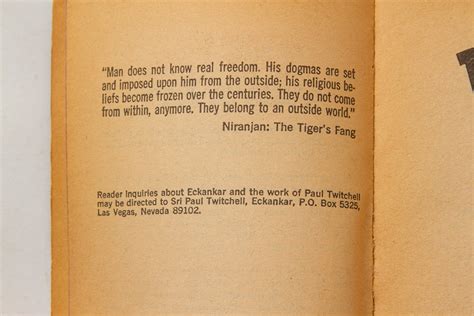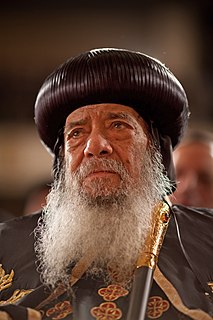A Quote by Plotinus
Pleasure and distress, fear and courage, desire and aversion, where have these affections and experiences their seat?Clearly, either in the Soul alone, or in the Soul as employing the body, or in some third entity deriving from both. And for this third entity, again, there are two possible modes: it might be either a blend or a distinct form due to the blending.
Related Quotes
An adept of Kriya Yoga conquers death by taking the soul beyond identification with the physical body, consciously and at will; and then returning to the consciousness of the mortal form again. By this process, he experiences the body as merely the material dwelling place of the soul. He can remain therein as long as he wants; and after that body has fulfilled its usefulness, he can quit it at will without suffering physical pain or mental pain due to attachment, and enter his omnipresent home in God.
We may treat of the Soul as in the body - whether it be set above it or actually within it - since the association of the two constitutes the one thing called the living organism, the Animate.Now from this relation, from the Soul using the body as an instrument, it does not follow that the Soul must share the body's experiences: a man does not himself feel all the experiences of the tools with which he is working.
With billions of years, who knows what science might make possible? Why, it might even make it possible for an intelligence, or data patterns representing it, to survive a big crunch and exist again in the next cycle of creation. Such an entity might even have science sufficient to allow it to influence the parameters for the next cycle, creating a designer universe into which that entity itself will be reborn already armed with billions of years worth of knowledge and wisdom.
A single person is a manageable entity, whom you can either make friends with or leave alone. But half of a married couple is not exactly a whole human being: if the marriage is successful it is something a little more than that; if unsuccessful, a little less. In either case, a fresh complication is added to the already intricate business of friendship: as Clem had once remarked, you might as well try to dance a tarantella with a Siamese twin.
Fasting is not bodily hunger but bodily elevation and purity. It is not a body that hungers and longs for food, but a body that rids itself of the desire to eat. Fasting is a time when the soul flourishes and lifts the body up with it. It rids the body of its loads and burdens and lifts it up so that God may work with it without impediment to the happiness of the spiritual entity.
There's two kinds of thinking. There is conjunctive thinking and there's disjunctive thinking. Disjunctive thinking says it has to be either/or. Now clearly, there are some either/or's - I either trust Christ or I don't. I'm either pregnant or I'm not. But a lot of thinking in Scripture, when it comes to theology is, in my opinion, conjunctive thinking. It's both/and. I believe that and I believe that.
The effect of speech upon the condition of the soul is comparable to the power of drugs over the nature of bodies. For just as different drugs dispel different secretions from the body, and some bring an end to disease and others to life, so also in the case of speeches, some distress, others delight, some cause fear, others make the hearers bold, and some drug and bewitch the soul with a kind of evil persuasion.








































